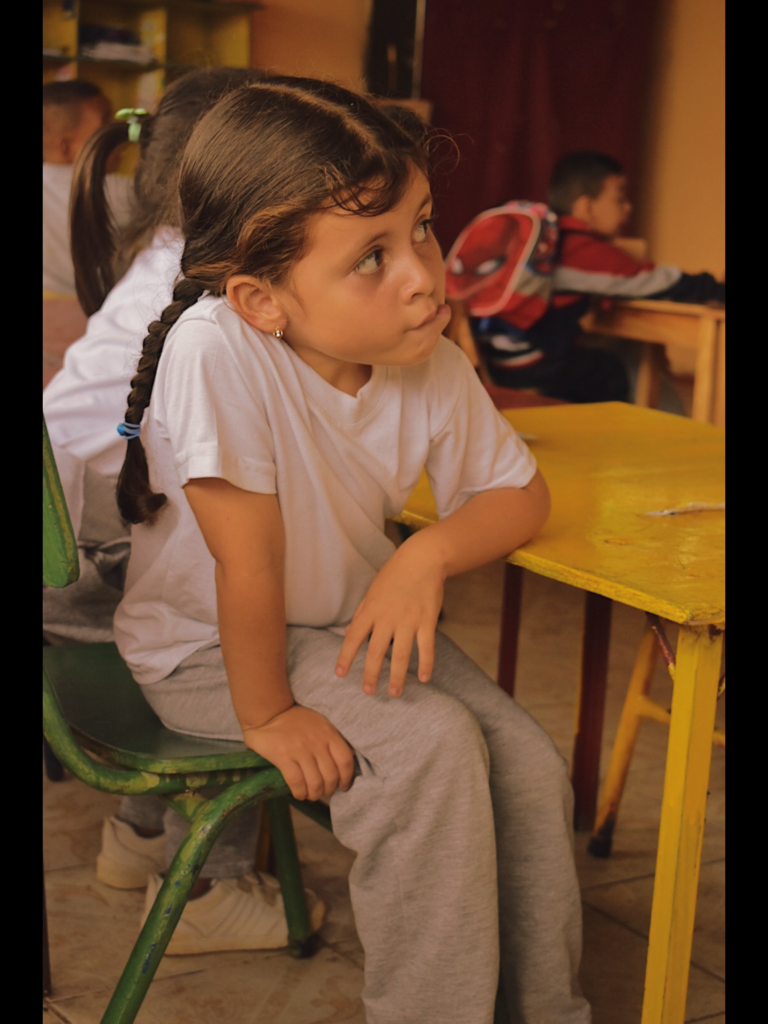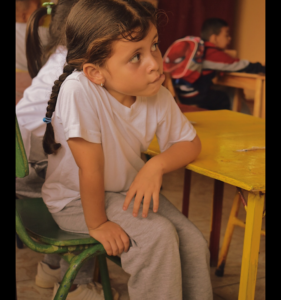I have been pondering, what is the spiritual abuse of children? And what are its effects? And what is a healthy spirituality characterised by?
Let’s start with what some churches give as the definition in their own safeguarding policies.
“Spiritual abuse is a form of emotional and psychological abuse. It is characterised by a systematic pattern of coercive and controlling behaviour in a religious context. Spiritual abuse can have a deeply damaging impact on those who experience it. However, holding a theological position is not in itself inherently spiritually abusive, but misuse of scripture, applied theology and doctrine is often a component of spiritually abusive behaviour.” Thirtyone:eight position paper, UK church safeguarding organisation.
“Spiritual abuse generally refers to the misuse of a position of power, leadership or influence within a faith community in order to control members of that group… and can include using religious or spiritual beliefs to control any children in the household including controlling their religious life”. Church of Scotland
“Spiritual abuse is psychological or emotional abuse within a religious context. It is characterised by a systematic pattern of coercive and controlling behaviour in a religious context. It can include misusing scripture to coerce behaviour, coercing through censorship (silencing), requiring unquestioning obedience, using a sense of divine position to exert pressure to conform and suggesting this position is unchallengeable, enforced accountability, exclusion or isolation of individuals as a punishment for non-compliance, coercing behaviour through exploitation and manipulation, publicly shaming and humiliating individuals in order to control their behaviour, threats of spiritual consequences, and inappropriate mentoring relationships.” Church of England
“The inappropriate use of religious belief or practice; coercion and control of one individual by another in a spiritual context; the abuse of trust by someone in a position of spiritual authority (e.g. minister). The person experiences spiritual abuse as a deeply emotional personal attack.” Baptist Union England
Here are the voices of some children.
“I am 5 years old. I know I am a Christian, and that means I must evangelise my friends at school. I am different to them. I know Jesus. It is dangerous for me to make friends with them. They might lead me astray. They are all going to hell. I must save as many of them as I can. If I am too afraid to tell them about Jesus, I am a coward and I’m letting God down.”
“I must obey my parents all the time. God says I am wicked if I disobey or make them annoyed. I try to be perfect. But it is so hard. I know I am a miserable worm, and will never be good enough. But I have to keep trying, or I will end up in hell.”
“I am 10 years old, and I wish I had never been born. It is all a cruel joke. I never asked to exist. But here I am, and I now have to exist for all eternity. If I get the answer to the riddle wrong, I am going to end up burning in hell forever. What kind of God made life this way? And there is no escape, even killing myself won’t free me. I wish I had never been born.”
Spiritual abuse is not something that is talked about nearly as much as other forms of abuse, and often does not feature in safeguarding training. Some argue there is no need for this term at all, as it is covered legally by the terms emotional and psychological abuse. Certainly, where there is spiritual abuse, there are often other forms of abuse occurring also. And, all forms of abuse are ultimately emotional abuse. However, I think there is something particularly heinous and damaging about spiritual abuse, because it is manipulating people into believing that unless they truly believe doctrines that are, in reality, intrinsically horrifying to them, they themselves are wicked and rejected by God Himself. It is a cruel form of torture that leaves them with an internal war, never able to feel at peace. They hate themselves for some of their professed beliefs, and are too afraid of the consequences of speaking their doubts aloud to even acknowledge this unbelief exists. They remain subconscious, unspoken, and wreak havoc on the inner world of the person.
Children raised in a spiritually abusive environment are very vulnerable. In these circumstances, they are being conditioned or brain-washed before they have even had a chance to think for themselves or develop their sense of self. When they are raised in a family or community where their religion is used to control and coerce their behaviour it is deeply damaging. They repress their emotions. They do not develop an authentic sense of self. They are too fearful to even learn about what other religions teach, let alone consider adopting other belief systems. They grow up anxious. Their bodies store the trauma and they become ill, or unable to function as time goes on.
Thirtyone:eight state that holding a theological position is not in itself abusive. There seems to me to be a very fine line when teaching some doctrines to children, particularly as the adult has power over the child.
Let’s take the example of the belief, “If you are not a Christian you are going to go to hell when you die.” At the very least, this is fear-inducing.
If a parent uses this belief to control their child, for the benefit of the adult, then it is abuse. It is deeply damaging when a child is forced to comply because they are afraid, not only of their parents, but of God, who is all-seeing and omnipresent.
If a parent truly believes this statement, and also loves their child, they will teach it from a place of love, trying to save their child from eternal damnation. Here, there is no intention to abuse their child. However, the teaching itself remains damaging. The child is very likely to grow up anxious. The parents, too, are likely to be anxious! It is very hard for such a parent to avoid putting pressure on their child to adopt their beliefs, as they truly believe the eternal stakes are so high. It is very difficult for the child to step back and question whether they also believe this, when they are caught up in a cycle of fervent belief and fear. The damage is passed on from one generation to the next, until someone breaks the cycle.
And then there are the parents who profess to believe this, but also give their children the space to question their faith. Perhaps it is not mentioned very often. The parents focus on loving their children, showing them kindness, encouraging them to thrive. Hell is never used as a threat in day-to-day life. Faith is more something that is lived out, than doctrines taught in words. The children know their parents will love them and be proud of them no matter what.
Pete Rollins says in the Divine Magician, “An insidious unbelief allows communities to get the psychological pleasure from the beliefs they hold without having to actually confront the horror of fully affirming them in a material way.” So, often people say “I believe non-Christians are going to hell.” But they are not desperately going around trying to convert everyone they meet. If they are really honest, they do not believe that can actually be true. They can enjoy the security that belief gives them, maybe even the sense of being “right” and “superior”, without ever confronting the horror of believing their neighbour is going to burn in eternal torment.
These people are not abusive. Their children feel free to make their own choices about their beliefs. Sometimes, the belief of the parent will actually crumble when the unbelief is exposed. In this case, for example, it might be when their dearly loved, precious, non-Christian child dies in a motor-bike accident. There is no death bed repentance. What do they believe then?
And of course, in reality, there are not 3 groups of people, but rather a spectrum.
Spiritual abuse feels like absolutes, objectification, repression of emotions, oppression, violation of boundaries, prohibition of free thought and questions, no room for disagreement, entrapment, lack of self-worth, never good enough, obligation, exclusion, fear, pressure, control and coercion.
Healthy spirituality feels like an invitation, choices, spaciousness, freedom, liberation, expansion, curiosity, peace, awe, abundance, diversity, inclusivity, loving kindness and authenticity.
You can add to the lists.
When a person starts the journey out of a childhood where they experienced spiritual abuse, or the non-abusive damage incurred from fervently held damaging beliefs, the first character they meet along the journey is often fear. There is a deep-rooted fear that going on this journey will mean finding out they were right all along – I am worthless and evil.
Take courage my friend. I invite you to come with me on the journey of finding yourself, and your true identity and spirituality. You can choose to leave the transactions behind. Real transformation is possible.
And if you are worried about how and what to teach your children, going on this journey will inevitably and gently transform how you parent. The fear, obligation, and worry about what others think gradually fades away. You start to feel secure enough in who you are, as a wondrous, equal human being, to let them be that too. You start to trust that loving them, with guidance and invitations is enough. You stop trying to have the answers to the meaning of life by the age of 5, and instead go together on the life-long journey of discovery. Your new joyful appreciation of life allows you to be curious together and to experience together the awe and wonder of being alive.
If you have been affected by spiritual abuse this website offers support https://www.replenished.life/support-and-practical-advice



Pingback: Eternity - returning home to yourself